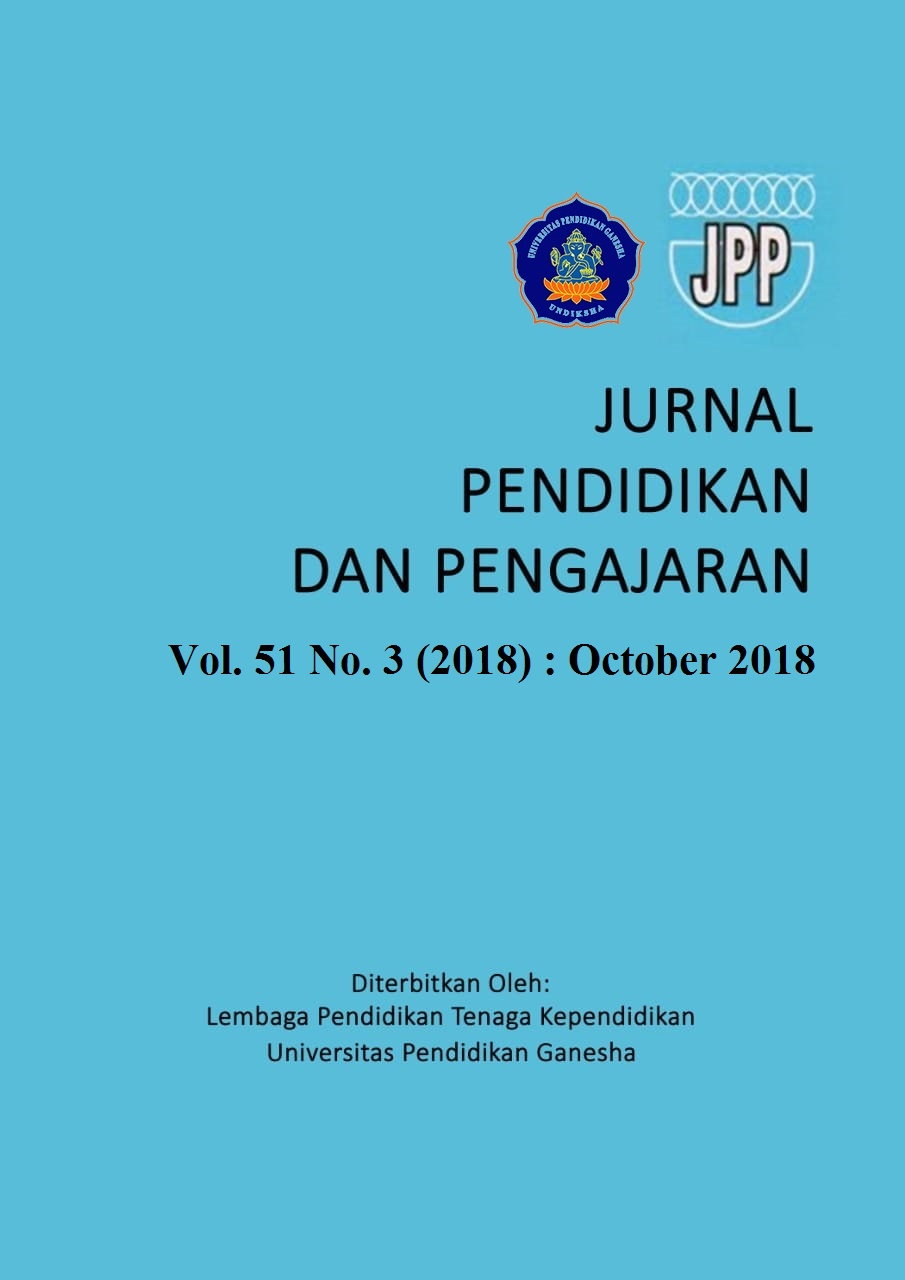Student teams achievement divisions (STAD) to enhance learning outcome
DOI:
https://doi.org/10.23887/jpp.v51i3.15925Kata Kunci:
the student teams achievement divisions, STAD, learning outcomes, social scienceAbstrak
This study aimed at determining the increase in students’ learning outcomes in social science by applying the student teams achievement divisions (STAD) model with the steps based on Curriculum 2013. This research was a type of a classroom action research which was conducted in two cycles in 33 fourth grade students in a primary school in Salatiga in second semester of academic year 2017/2018. Data was collected using test and non-test techniques with help of evaluation test and an observation sheet. Results show improvement of learning outcomes by applying STAD model on social science subjects. The average completeness of learning outcomes increased from pre-cycle to cycle II. At pre-cycle, the average was 57.71 with 31,42% completeness, at cycle I was 68.28 with 50% completeness, and cycle II was 70 with 71.87% completeness. Therefore, applying the STAD model can improve the learning outcomes of primary students in social science.Unduhan
Diterbitkan
2018-10-29
Cara Mengutip
Patimah, S., Slameto, S., & Setyaningtyas, E. W. (2018). Student teams achievement divisions (STAD) to enhance learning outcome. Jurnal Pendidikan Dan Pengajaran, 51(3), 132–137. https://doi.org/10.23887/jpp.v51i3.15925
Terbitan
Bagian
Articles
Lisensi
Authors who publish with Jurnal Pendidikan dan Pengajaran agree to the following terms:- Authors retain copyright and grant the journal the right of first publication with the work simultaneously licensed under a Creative Commons Attribution License (CC BY-SA 4.0) that allows others to share the work with an acknowledgment of the work's authorship and initial publication in this journal
- Authors are able to enter into separate, additional contractual arrangements for the non-exclusive distribution of the journal's published version of the work (e.g., post it to an institutional repository or publish it in a book), with an acknowledgment of its initial publication in this journal.
- Authors are permitted and encouraged to post their work online (e.g., in institutional repositories or on their website) prior to and during the submission process, as it can lead to productive exchanges, as well as earlier and greater citation of published work. (See The Effect of Open Access)





